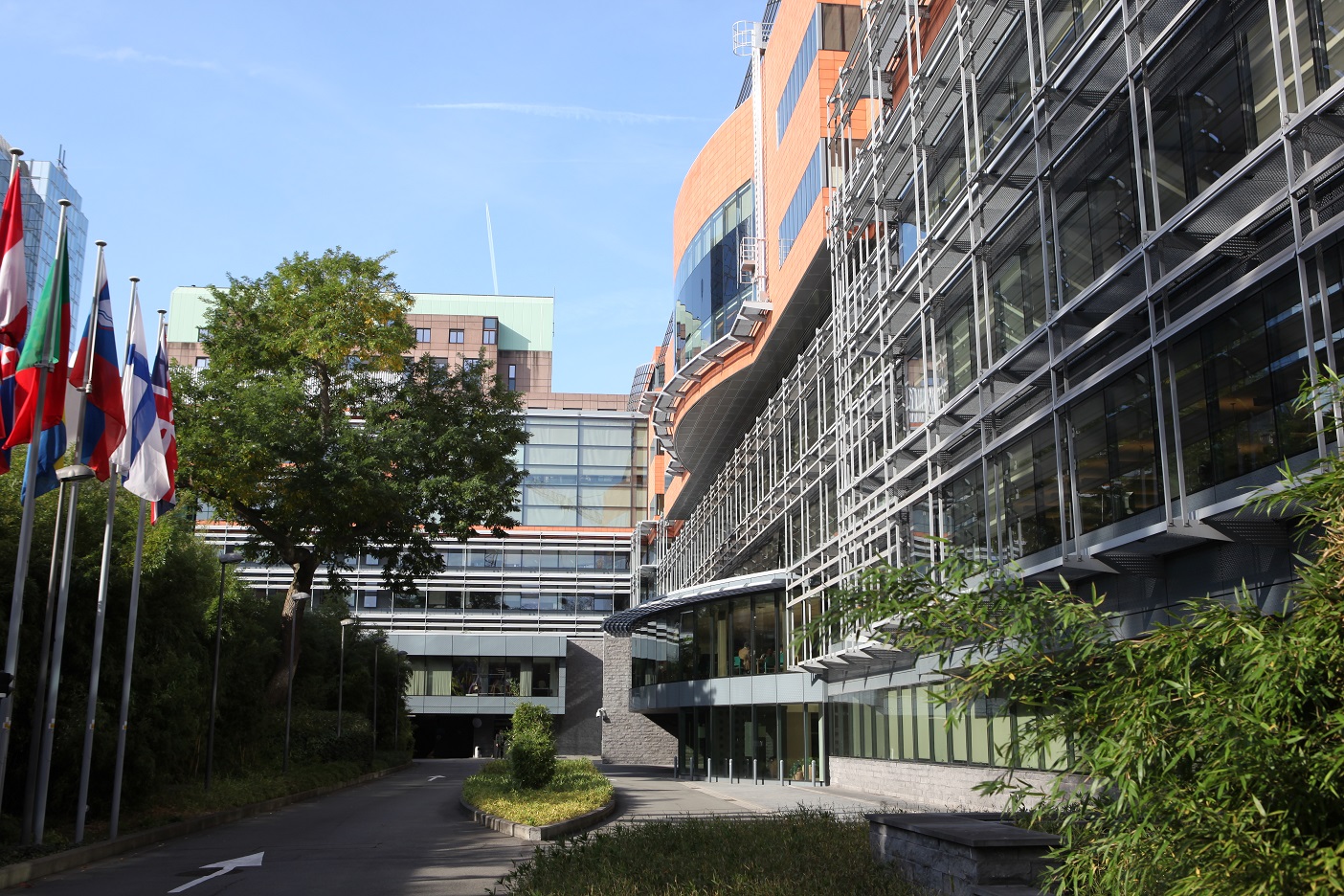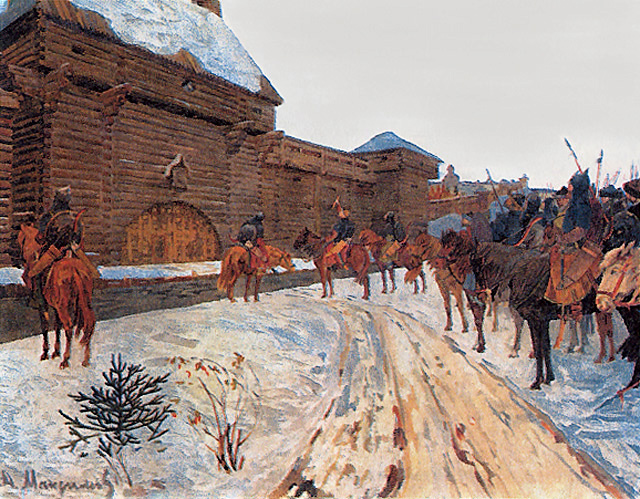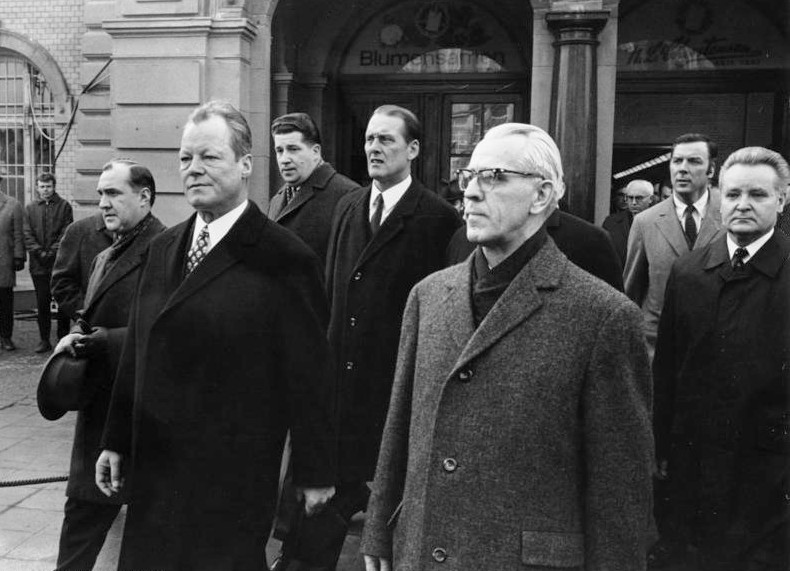|
Dietmar Hahlweg
Dietmar Hahlweg (born 31 December 1934 in Jagatschütz) is a German Politician (Social Democratic Party of Germany, SPD). He was Erlangen's mayor from 1972 to 1996. Biography Dietmar Hahlweg was born in the Lower Silesian village of Jagatschütz near Prusice (modern. After World War II he lived with his family in Upper Franconia. After graduating from high school in 1953, Hahlweg studied law in Bonn, Munich and Erlangen from 1953 to 1957. In 1960 he received his doctorate at the University of Erlangen–Nuremberg. After his second Staatsexamen in 1961/62, he spent time abroad at the University of Pittsburgh. From 1964 onwards, Hahlweg was a civil servant at the district office in Erlangen. From 1971 to 1972, he headed the office for planning and building supervision at the government of Middle Franconia. Dietmar Hahlweg is married. The television personality Barbara Hahlweg is his daughter. As mayor of Erlangen Election results In 1971, Hahlweg was the Social Democratic Part ... [...More Info...] [...Related Items...] OR: [Wikipedia] [Google] [Baidu] |
University Of Erlangen–Nuremberg
University of Erlangen–Nuremberg (german: Friedrich-Alexander-Universität Erlangen-Nürnberg, FAU) is a Public University, public research university in the cities of Erlangen and Nuremberg in Bavaria, Germany. The name Friedrich–Alexander comes from the university's first founder Frederick, Margrave of Brandenburg-Bayreuth, Friedrich, Margrave of Brandenburg-Bayreuth, and its benefactor Alexander, Margrave of Brandenburg-Ansbach. FAU is the second largest state university in the state of Bavaria. It has 5 faculties, 24 departments/schools, 25 clinical departments, 21 autonomous departments, 579 professors, 3,457 members of research staff and roughly 14,300 employees. In winter semester 2018/19 around 38,771 students (including 5,096 foreign students) enrolled in the university in 265 fields of study, with about 2/3 studying at the Erlangen campus and the remaining 1/3 at the Nuremberg campus. These statistics put FAU in the list of top 10 largest universities in Germany. I ... [...More Info...] [...Related Items...] OR: [Wikipedia] [Google] [Baidu] |
Siegfried Balleis
Siegfried Balleis (born August 4, 1953) is a German politician, representative of the Christian Social Union of Bavaria. In 1996 he was elected Oberbürgermeister for the town of Erlangen.cfinauguration speech He was in office until April 2014. From 1982 to 1993 he was married to Gabriele Pauli. See also *List of Bavarian Christian Social Union politicians A list of notable politicians of the Christian Social Union in Bavaria (CSU): A * Manfred Ach * Heinrich Aigner * Ilse Aigner * Katrin Albsteiger * Max Allwein * Walter Althammer * Hans Amler * Erwin Ammann * Johann Anetseder * Willi Ankerm� ... References Christian Social Union in Bavaria politicians 1953 births Living people Mayors of Erlangen {{Germany-CSU-politician-stub ... [...More Info...] [...Related Items...] OR: [Wikipedia] [Google] [Baidu] |
Social Democratic Party Of Germany Politicians
Social organisms, including human(s), live collectively in interacting populations. This interaction is considered social whether they are aware of it or not, and whether the exchange is voluntary or not. Etymology The word "social" derives from the Latin word ''socii'' ("allies"). It is particularly derived from the Italian ''Socii'' states, historical allies of the Roman Republic (although they rebelled against Rome in the Social War of 91–87 BC). Social theorists In the view of Karl MarxMorrison, Ken. ''Marx, Durkheim, Weber. Formations of modern social thought'', human beings are intrinsically, necessarily and by definition social beings who, beyond being "gregarious creatures", cannot survive and meet their needs other than through social co-operation and association. Their social characteristics are therefore to a large extent an objectively given fact, stamped on them from birth and affirmed by socialization processes; and, according to Marx, in producing and reproducin ... [...More Info...] [...Related Items...] OR: [Wikipedia] [Google] [Baidu] |
1934 Births
Events January–February * January 1 – The International Telecommunication Union, a specialist agency of the League of Nations, is established. * January 15 – The 8.0 Nepal–Bihar earthquake strikes Nepal and Bihar with a maximum Mercalli intensity of XI (''Extreme''), killing an estimated 6,000–10,700 people. * January 26 – A 10-year German–Polish declaration of non-aggression is signed by Nazi Germany and the Second Polish Republic. * January 30 ** In Nazi Germany, the political power of federal states such as Prussia is substantially abolished, by the "Law on the Reconstruction of the Reich" (''Gesetz über den Neuaufbau des Reiches''). ** Franklin D. Roosevelt, President of the United States, signs the Gold Reserve Act: all gold held in the Federal Reserve is to be surrendered to the United States Department of the Treasury; immediately following, the President raises the statutory gold price from US$20.67 per ounce to $35. * February 6 – F ... [...More Info...] [...Related Items...] OR: [Wikipedia] [Google] [Baidu] |
Living People
Related categories * :Year of birth missing (living people) / :Year of birth unknown * :Date of birth missing (living people) / :Date of birth unknown * :Place of birth missing (living people) / :Place of birth unknown * :Year of death missing / :Year of death unknown * :Date of death missing / :Date of death unknown * :Place of death missing / :Place of death unknown * :Missing middle or first names See also * :Dead people * :Template:L, which generates this category or death years, and birth year and sort keys. : {{DEFAULTSORT:Living people 21st-century people People by status ... [...More Info...] [...Related Items...] OR: [Wikipedia] [Google] [Baidu] |
Comic Salon Erlangen
a medium used to express ideas with images, often combined with text or other visual information. It typically the form of a sequence of panels of images. Textual devices such as speech balloons, captions, and onomatopoeia can indicate dialogue, narration, sound effects, or other information. There is no consensus amongst theorists and historians on a definition of comics; some emphasize the combination of images and text, some sequentiality or other image relations, and others historical aspects such as mass reproduction or the use of recurring characters. Cartooning and other forms of illustration are the most common image-making means in comics; '' fumetti'' is a form that uses photographic images. Common forms include comic strips, editorial and gag cartoons, and comic books. Since the late 20th century, bound volumes such as graphic novels, comic albums, and ' have become increasingly common, while online webcomics have proliferated in the 21st century. The history ... [...More Info...] [...Related Items...] OR: [Wikipedia] [Google] [Baidu] |
Max & Moritz Prize
The Max & Moritz Prize is a prize for comic books, comic strips, and other similar materials which has been awarded at each of the biennial International Comics Shows of Erlangen since 1984. It is open to all material published in Germany. 1984 * Best German-language Comic Artist: * Best Comic Strip: ''Hägar the Horrible'', by Dik Browne * Best German-language Comic/Comic-related Publication: ''Edition Comic Art'' (series) (Carlsen Verlag) 1986 * Best German-language Comic Artist: Matthias Schultheiss * Best Comic Strip: ''Animal Crackers (comic strip), Animal Crackers'' by Rog Bollen * Best German-language Comic/Comic-related Publication: ** ''Macao - Internationale Comics'' (Macao Books, Wuppertal) ** ' Comic Art Magazine (Zürich, Munich) ** ''Coeurs de sable'', by Jacques de Loustal & () ** ''Peter and the Wolf'', by :de:Jörg Müller (Künstler), Jörg Müller & Vicco von Bülow, Loriot () 1988 * Best German-language Comic Artist: Franziska Becker * Best Comic Strip ... [...More Info...] [...Related Items...] OR: [Wikipedia] [Google] [Baidu] |
Bavarian Order Of Merit
The Bavarian Order of Merit (german: Bayerischer Verdienstorden) is the Order of Merit of the Free State of Bavaria. It is awarded by the Minister-President of Bavaria as a "recognition of outstanding contributions to the Free State of Bavaria and the Bavarian people". The order was instituted by law on 11 June 1957. The Prime Minister and the Cabinet can nominate awardees. Hemmerle, a German jewellery house based in Munich founded in 1893, is the exclusive maker of the Bavarian Order of Merit since it was instituted in 1957. * Hermann Josef Abs * Ann-Kristin Achleitner * Josef Ackermann (journalist) * Lea Ackermann * Konrad Adenauer * Percy Adlon * Mario Adorf * Josef Afritsch * Heinrich Aigner * Ilse Aigner * Korbinian Aigner * Werner Andreas Albert * Walter Althammer * Paul Althaus * Axel von Ambesser * Tobias Angerer * Willi Ankermüller * Gisela Anton * Evangelos Averoff * Georg Bachmann * Rudolf Bachmann * Friedrich Baethgen * Michael Ballhaus * Klaus Barthel * Wła ... [...More Info...] [...Related Items...] OR: [Wikipedia] [Google] [Baidu] |
Legion Of Honour
The National Order of the Legion of Honour (french: Ordre national de la Légion d'honneur), formerly the Royal Order of the Legion of Honour ('), is the highest French order of merit, both military and civil. Established in 1802 by Napoleon, Napoleon Bonaparte, it has been retained (with occasional slight alterations) by all later French governments and regimes. The order's motto is ' ("Honour and Fatherland"); its Seat (legal entity), seat is the Palais de la Légion d'Honneur next to the Musée d'Orsay, on the left bank of the Seine in Paris. The order is divided into five degrees of increasing distinction: ' (Knight), ' (Officer), ' (Commander (order), Commander), ' (Grand Officer) and ' (Grand Cross). History Consulate During the French Revolution, all of the French Order of chivalry, orders of chivalry were abolished and replaced with Weapons of Honour. It was the wish of Napoleon, Napoleon Bonaparte, the French Consulate, First Consul, to create a reward to commend c ... [...More Info...] [...Related Items...] OR: [Wikipedia] [Google] [Baidu] |
European Committee Of The Regions
The European Committee of the Regions (CoR) is the European Union's (EU) assembly of local and regional representatives that provides sub-national authorities (i.e. regions, counties, provinces, municipalities and cities) with a direct voice within the EU's institutional framework. Established in 1994, the CoR was set up to address two main issues. First, about three quarters of EU legislation is implemented at local or regional level, so local and regional representatives needed to have a say in the development of new EU laws. Second, there were concerns about a widening gap between the public and the process of European integration; involving the elected level of government closest to the citizens was one way of closing the gap. History Within the European Union, local and regional authorities have lobbied for an increased say in EU affairs. This resulted in the creation of the European Committee of the Regions by the Maastricht Treaty, and the provision for Member State ... [...More Info...] [...Related Items...] OR: [Wikipedia] [Google] [Baidu] |
Vladimir, Russia
Vladimir ( rus, Влади́мир, p=vlɐ'dʲimʲɪr, a=Ru-Владимир.ogg) is a city and the administrative center of Vladimir Oblast, Russia, located on the Klyazma River, east of Moscow. It is served by a railway and the M7 motorway. Population: History Vladimir was one of the medieval capitals of Russia, with significant buildings surviving from the 12th century. Two of its Russian Orthodox cathedrals, a monastery, and associated buildings have been designated as among the White Monuments of Vladimir and Suzdal, a UNESCO World Heritage Site. In the past, the city was also known as Vladimir-on-Klyazma () and Vladimir-Zalessky (), to distinguish it from another Vladimir in Volhynia (modern Ukraine). Foundation The founding date of Vladimir is disputed between 990 and 1108. In the ''Novgorod First Chronicle'', Vladimir is mentioned under the year 1108, and during the Soviet period, this year was decreed to be its foundation year with the view that attributes the fou ... [...More Info...] [...Related Items...] OR: [Wikipedia] [Google] [Baidu] |
Ostpolitik
''Neue Ostpolitik'' (German for "new eastern policy"), or ''Ostpolitik'' for short, was the normalization of relations between the Federal Republic of Germany (FRG, or West Germany) and Eastern Europe, particularly the German Democratic Republic (GDR, or East Germany) beginning in 1969. Influenced by Egon Bahr, who proposed "change through rapprochement" in a 1963 speech at the Evangelische Akademie Tutzing, the policies were implemented beginning with Willy Brandt, fourth Chancellor of the FRG from 1969 to 1974. ''Ostpolitik'' was an effort to break with the policies of the Christian Democratic Union (CDU), which was the elected government of West Germany from 1949 until 1969. The Christian Democrats under Konrad Adenauer and his successors tried to combat the Communist government of East Germany, while Brandt's Social Democrats tried to achieve a certain degree of cooperation with East Germany. The term ''Ostpolitik'' has since been applied to Pope Paul VI's efforts to eng ... [...More Info...] [...Related Items...] OR: [Wikipedia] [Google] [Baidu] |





